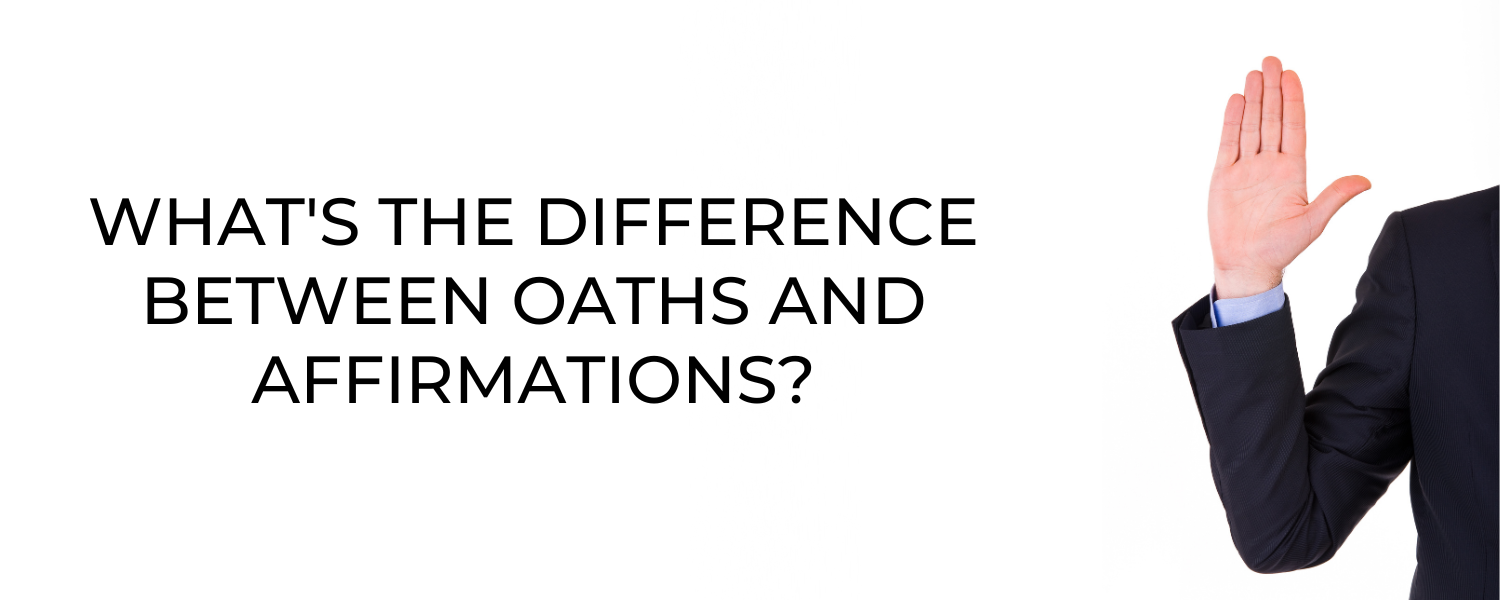
Revised April 18, 2023
A notary public, regardless of what state they are commissioned in, will have at least one authorized duty involving oaths and affirmations (executing jurats). Therefore, it is important for every notary public to know the difference.
Oath
An oath is a solemn or vow made by a person stating that they answer to God or a Supreme Being for telling the truth. When administering an oath, the notary will often say something along the lines of “Do you solemnly swear, under the penalties of perjury, that the information in this document is the truth, so help you God?”
Affirmation
An affirmation is when a person is bound by their own conscience to tell the truth. It removes the element of religion, which some people object to. In this instance, the notary instead asks, "Do you affirm under the penalties of perjury, that the information contained in this document is the truth?"
BOTH
Despite these differences, an oath and an affirmation have the same legal effect, as they both constitute a form of jurat. They both reference the content of the document or statement, and require someone to attest to its truthfulness. In addition, a false oath or a false affirmation are both examples of perjury, which is a felony crime punishable by law with a prison sentence and/or a fine.
Prior to executing a jurat, you should ask if the signer would rather take an oath or an affirmation. If the signer doesn't know the difference, you may explain it, but let the signer choose which one to take.
